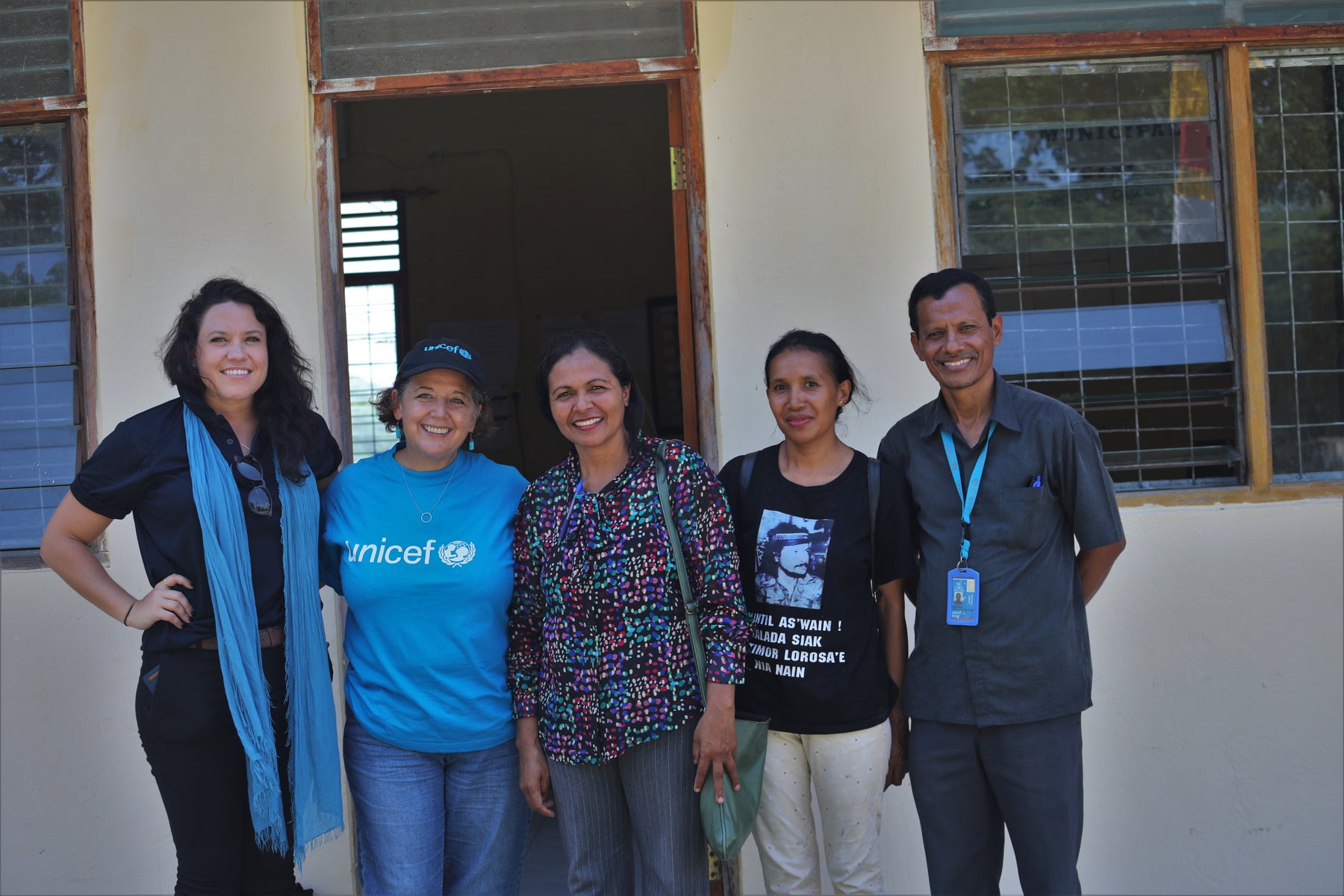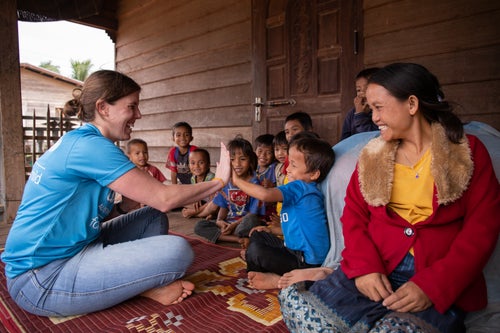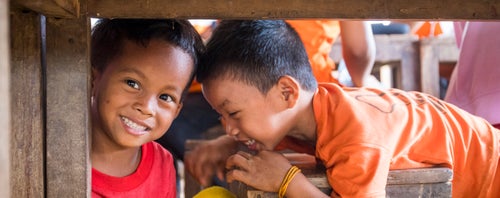"Before, I felt very sad...but I refused to give up,” says Joanna, a government Child Protection officer from Manatuto, Timor-Leste. Joanna told us in the past there was not enough funding in her country to support children affected by violence.
“I went around to different organisations, talking to community and the survivors themselves, identifying the resources they have to help communities drive the changes they want."
Joanna is one of 300 social welfare workers who have recently completed a 180-hour social welfare training course, designed by UNICEF Timor-Leste and the Timorese Ministry of Social Solidarity and Inclusion (MSSI), and supported by UNICEF Australia and the Australian government through the Australian NGO Cooperation Program (ANCP).
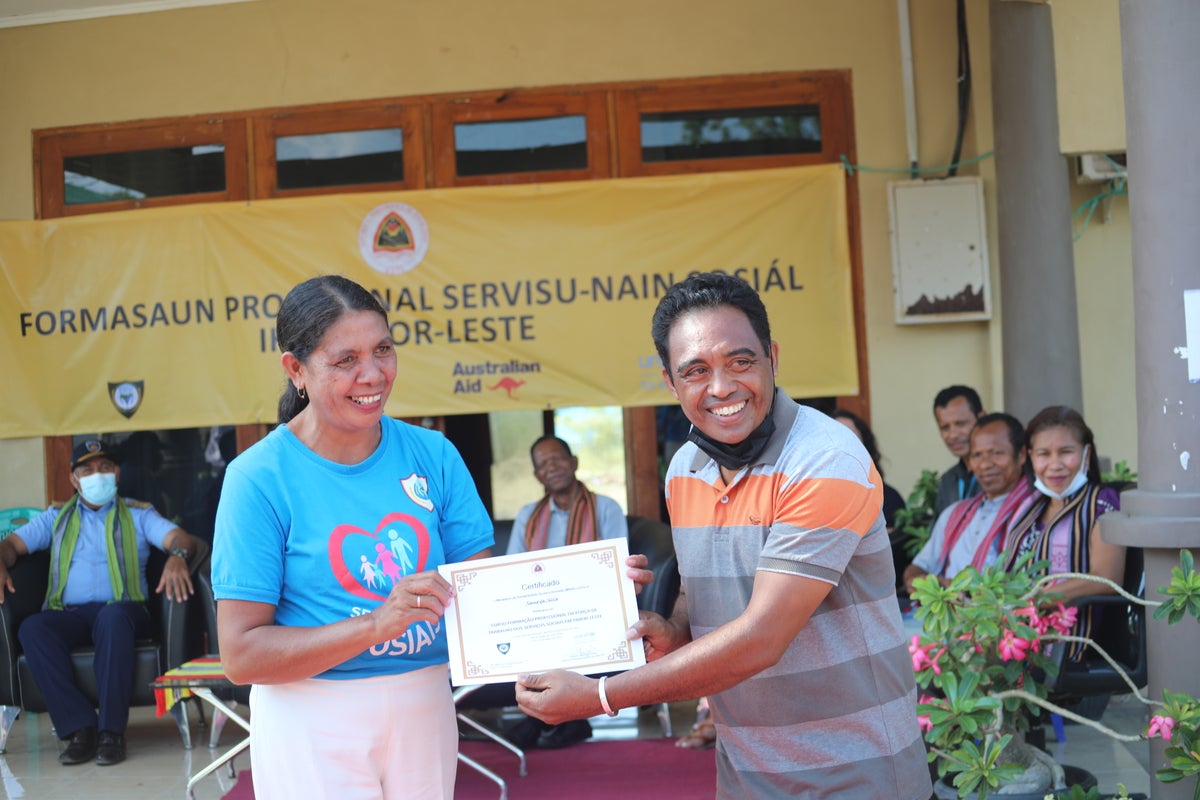
The innovative program was created after a national assessment in 2010 and follow-up consultations in 2012 revealed that the child protection system in Timor-Leste was not harnessing the potential positive role local and government leaders, community networks, families had if they worked together to shift harmful norms and attitudes towards children in their community.
Many children suffering from violence and abuse were removed from their homes and placed in institutions as a social welfare worker’s first response to protect children from harm.
The effect of displacement and isolation puts children at further risk of abuse and stigma, leading to long term effects on a child’s social, emotional and cognitive development. This also means that children are often unable to return to school or be reintegrated with their support networks of friends, family and their wider community.
In response, UNICEF Timor-Leste and the MSSI have been working closely to strengthen the child protection system, including the legal and policy framework in the country to change the lives of children from the highest levels of government.
Locally, social welfare workers like Joanna are benefitting from the UNICEF Australia and Australian government-supported social welfare training. The training brings together a ‘task force’ of professionals such as, child protection officers, educators, police, gender-based or domestic violence shelter managers and community and government leaders. Through the training they have learn to coordinate, and upskill their toolkit with positive child protection practices, ensuring that every child in Timor-Leste can grow up in a safe and nurturing environment.
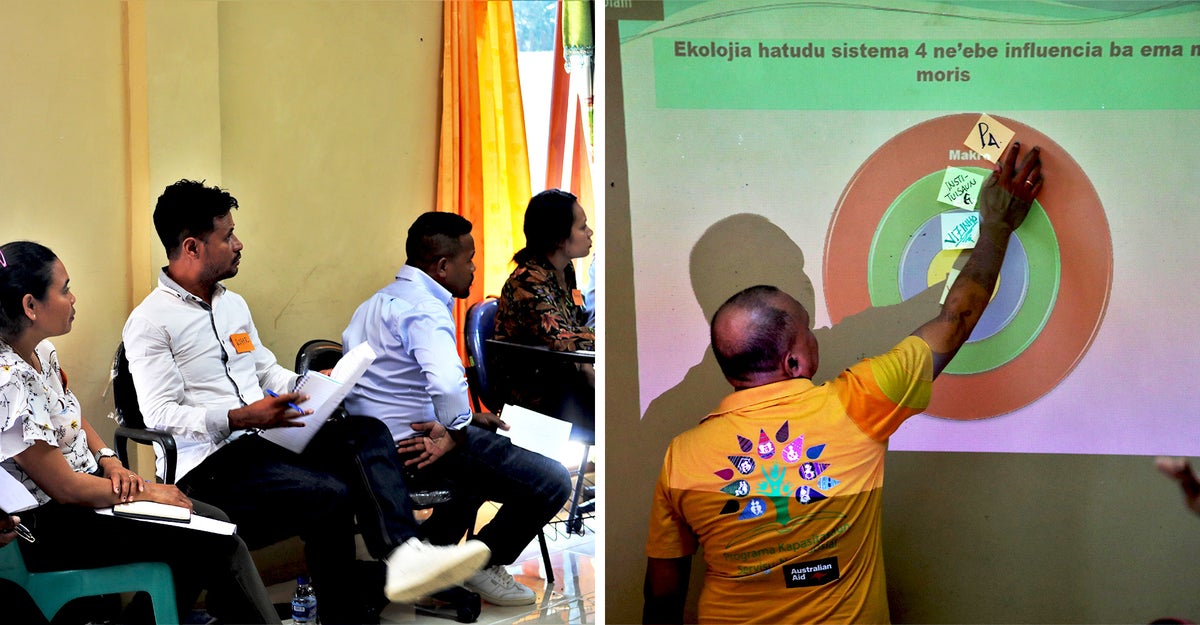
Joanna is confident that the child focused approach learnt in the training is making a huge impact in the lives of children.
“Now in my work, I keep in mind that family and community influence children’s upbringing, and their care and interaction with children influence how children cope with their difficult situations,” she says.
“I make sure I work with family and local authorities to address the risk and protect the child. At the same time, promoting the strengths that they have.”
“Seeing the children and families I work with happy because we created small changes in their lives amid the challenges they face is rewarding.”
"The training gave me [the] courage and skills to talk to the family. I have learnt most families have plans to keep their child's lives normal as possible. This is a positive thing that I need to support."

Joanna has seen progress since she and her peers have worked together to change their approach to social welfare.
“Sometimes women and children show up to a police station tired, hungry, and only with clothes they wore that day. Both police and the Ministry of Social Solidarity do not always have food to provide them.”
When Joanna saw this gap in the system, she used her training to turn to her network of community support in Manatuto, such as local women’s group, churches, and community group’s restaurants. This network provides a holistic range of services for women and children affected by violence, so they can rebuild their lives.
"In my community, we believe in good karma, or ‘han isin sikat ruin’ meaning eat the meat, keeps the bone. It is a debt of kindness, when you do good, others will do good to you when you are in need."
“These local organisations are happy if they can give back to community.”
Joanna has also remarked on the positive benefits that the training has had on shifting harmful norms and attitudes in the child protection system. There has been fewer cases of child survivors of abuse being sent to institutions, often leading to further trauma and displacement for the child. Instead community-based and family care and support are prioritised, while women and children access mental health, medical, legal and other services.
"Since the training we have not referred child survivors to live in the safe shelter. Instead, we have been working closely with families and local authorities to support the child. The training provided us with skills to create positive environments that support children in the long-term,” says Joanna.
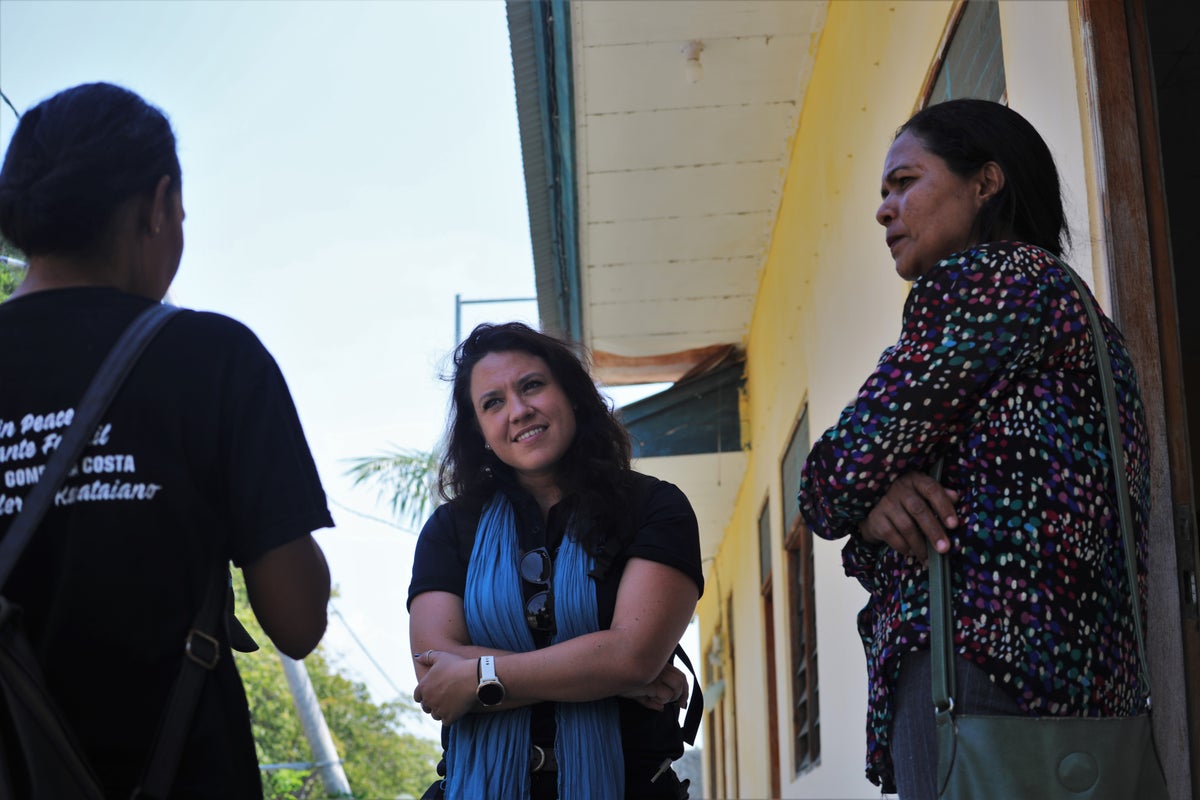
UNICEF Australia International Programs Manager, Alexandra Eaves, visited this program in March 2022. She spoke to Joanna and attended the graduation ceremony of hundreds of social welfare workers.
"It will be incredible to see children’s rights put front and centre, and families across the country receiving the benefits of this program."

“This program is transforming the social services system throughout the country, at all levels,” says Alexandra.
“I have been able to see with my own eyes how the local trainings are harmonising child protection systems and instilling positive norms and attitudes in community. It’s providing skills and confidence to social welfare workers across the country to undertake their important job of protecting children. I look forward to the next three-year phase of this project.”
This program is supported by generous Australian donors and Australian Government's Australian NGO Cooperation Program.
This story was co-written by Gizela Moniz Da Silva from UNICEF Timor-Leste.
Related articles
Stay up-to-date on UNICEF's work in Australia and around the world



